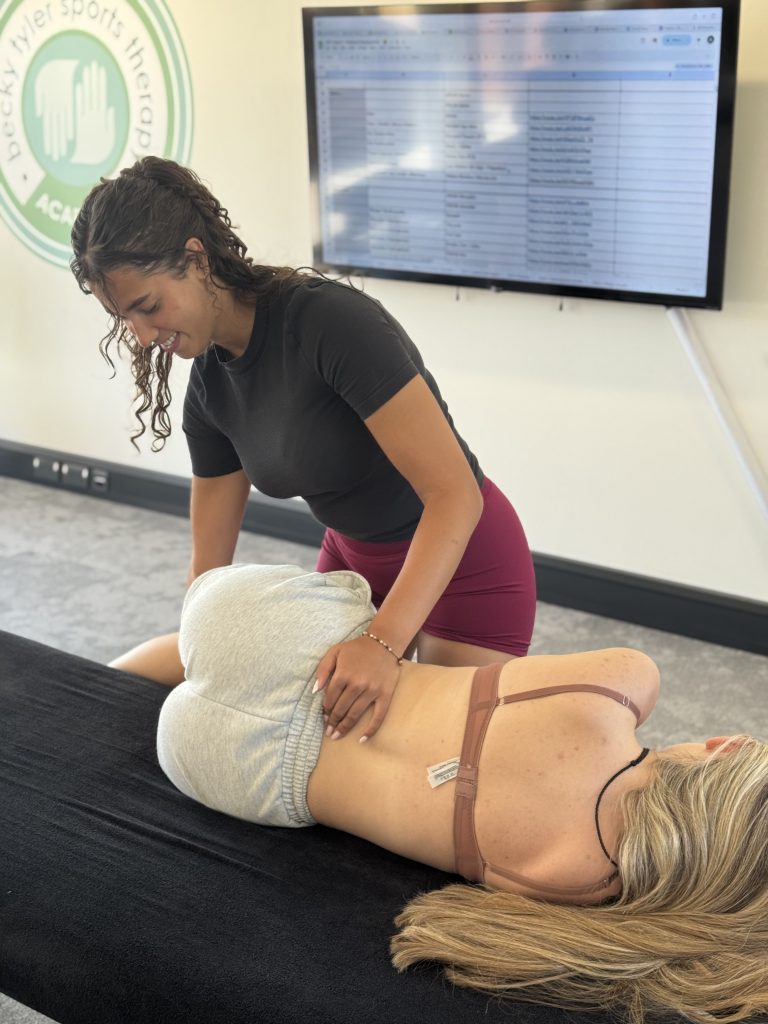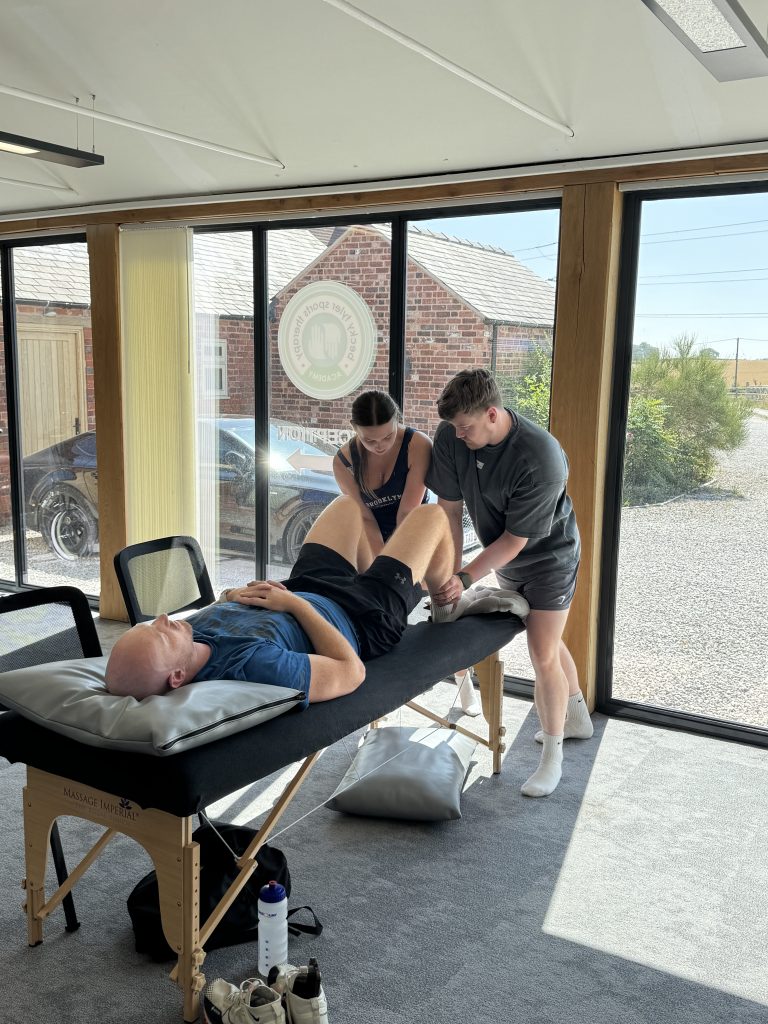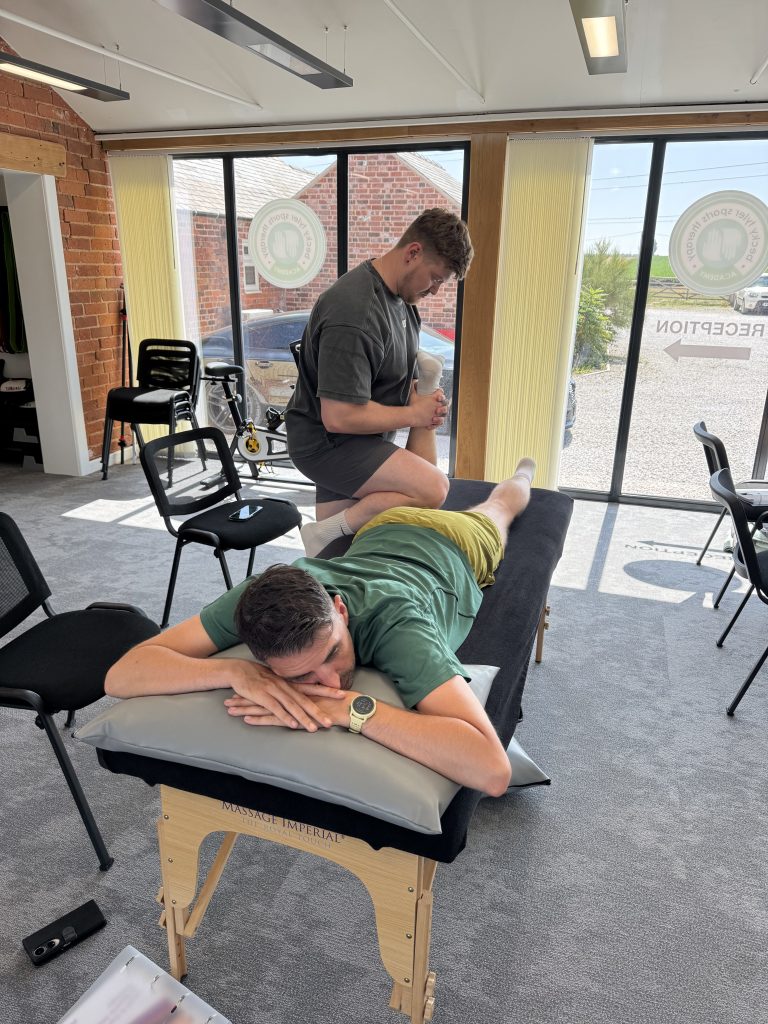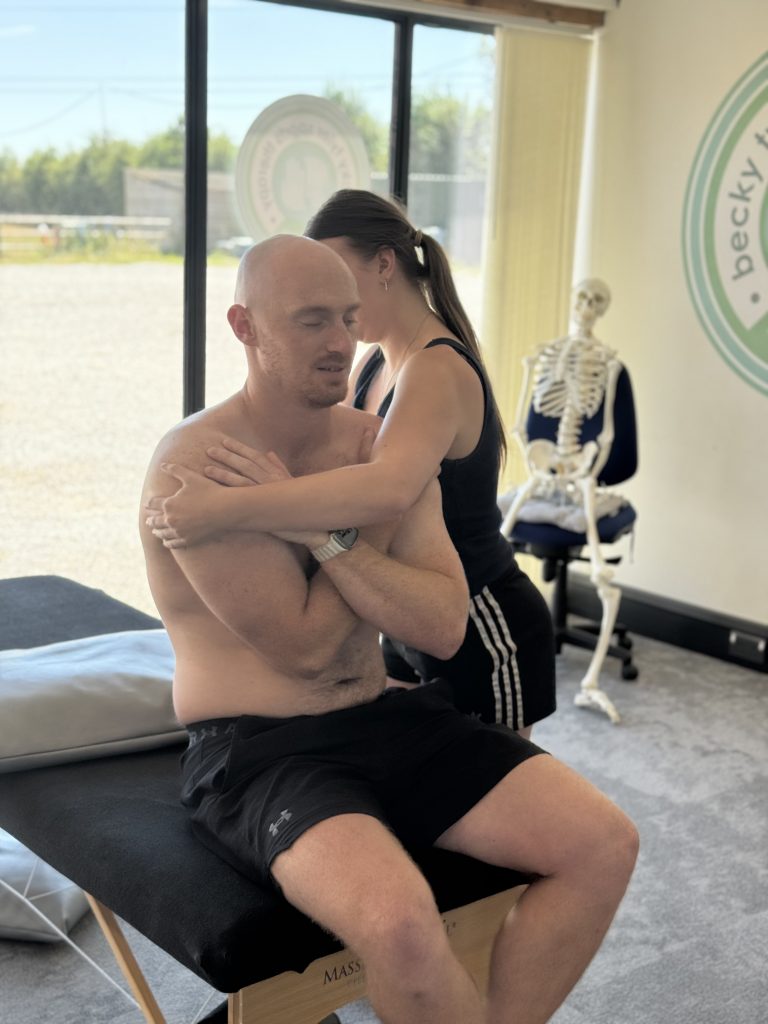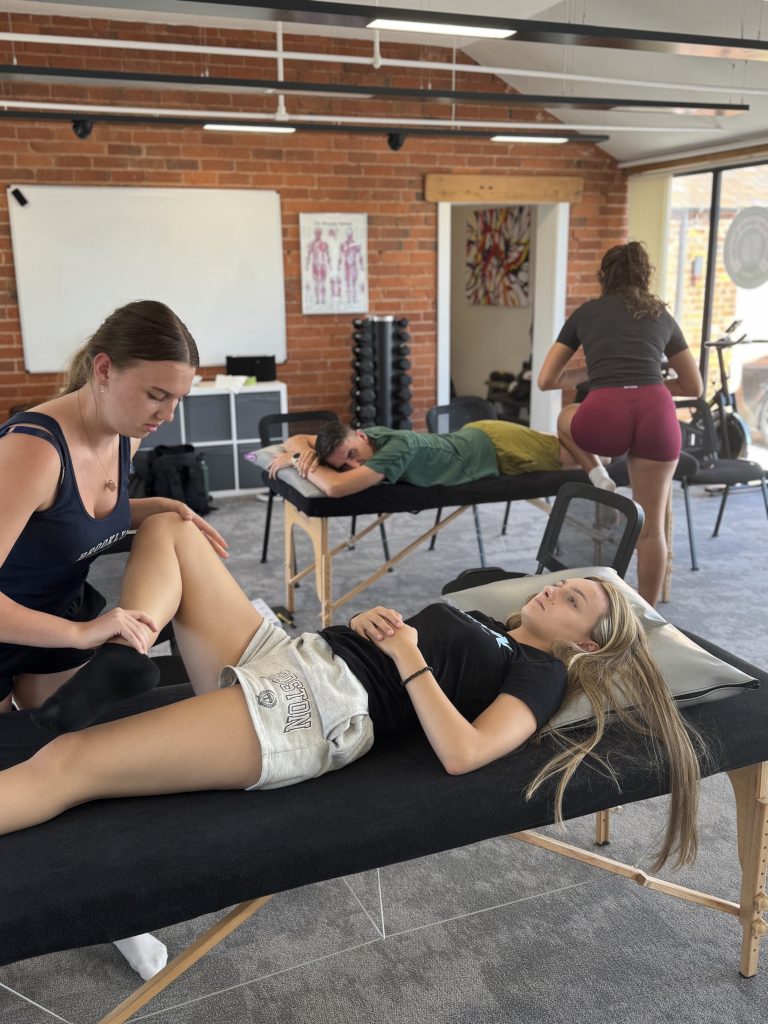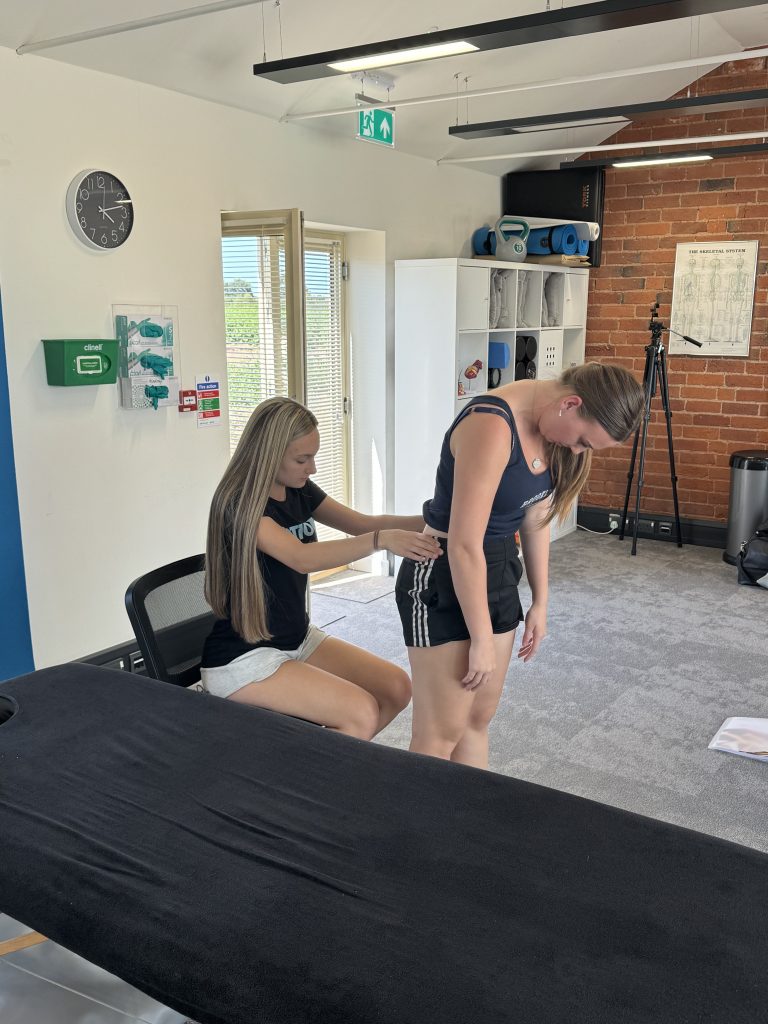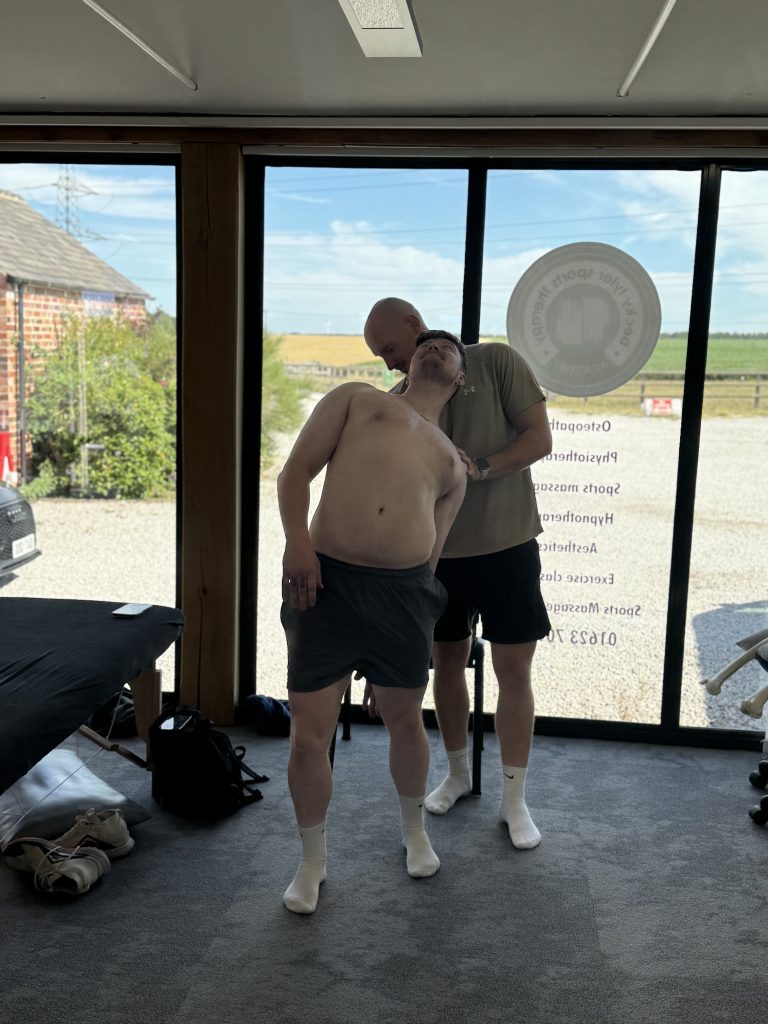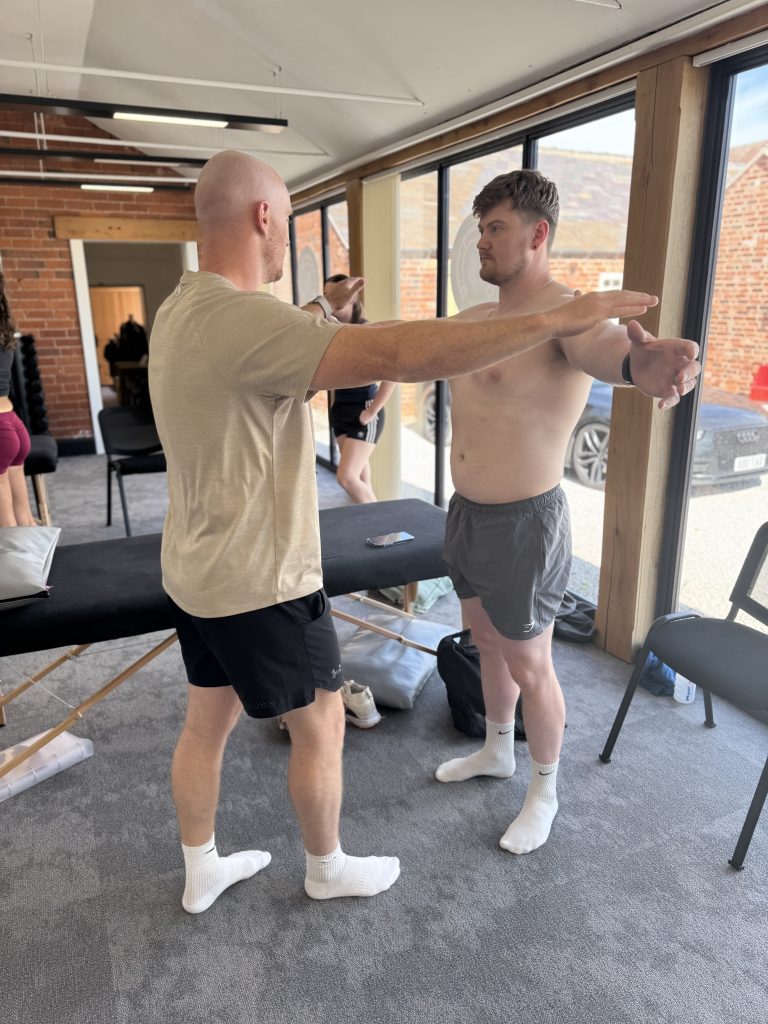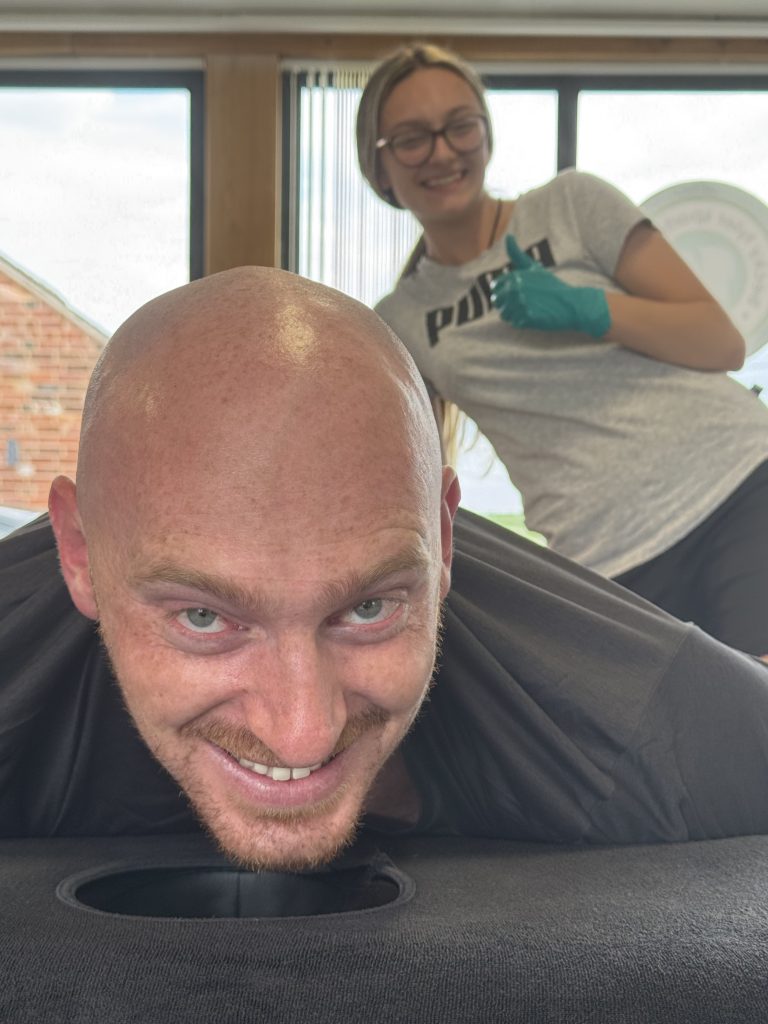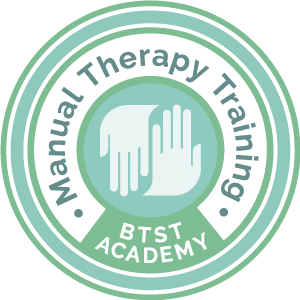Special Tests CPD

Location
BTST Academy & Clinic,
Holly Farm,
Clipstone Road,
Edwinstowe,
Nottingham,
NG21 9JD

Course Day Timings
9:30am – 4:30pm

Course Price
£189
Full payment required at time of booking

Tutor
Becky Tyler
BOst, PGCertSPOP
DipSMT
Course Content
Elevate Your Diagnostic Skills: Master Orthopedic Special Tests for Common MSK Conditions! Stop guessing and start confidently identifying musculoskeletal issues with this dynamic, practical CPD course. Led by experienced Register Osteopath Becky Tyler, you’ll go beyond basic assessment and gain mastery in performing and interpreting key orthopaedic special tests. This intensive course will equip you with the essential skills to accurately assess a wide range of commonly seen conditions, including Tennis Elbow, Plantar Fasciitis, Rotator Cuff Tears, and more. This is a critical CPD for any manual therapist wanting to refine their diagnostic accuracy and provide more effective treatment.
- Comprehensive Review of Common MSK Conditions: An in-depth overview of prevalent musculoskeletal conditions encountered in clinical practice
- Mastering Upper Limb Special Tests: Practical, hands-on instruction and practice in performing and interpreting key special tests for the shoulder (e.g., Empty Can, Hawkins-Kennedy, Neer’s), elbow (e.g., Jobe’s), wrist and hand (e.g., Phalen’s, Tinel’s, Finkelstein’s), and cervical spine (e.g., Spurling’s) etc. Emphasis will be placed on proper technique, sensitivity, specificity, and clinical relevance.
- Mastering Lower Limb and Lumbar Spine Special Tests: Practical, hands-on instruction and practice in performing and interpreting key special tests for the lumbar spine (e.g., Straight Leg Raise, Slump Test, Quadrant Test), sacroiliac joint (e.g., FABER), hip (e.g., Trendelenburg, Thomas), knee (e.g., McMurray’s, LCL), ankle and foot (e.g., Anterior Drawer, Windlass) etc. Emphasis will be placed on proper technique, sensitivity, specificity, and clinical relevance.
- Clinical Reasoning and Interpretation: Developing critical thinking skills to integrate special test findings with patient history and other assessment components to arrive at accurate diagnoses and inform treatment plans. Case studies and real-world scenarios will be utilised.
- Practical Application and Refinement: Ample opportunity for hands-on practice in pairs, receiving feedback on technique and interpretation to build confidence and proficiency in performing special tests.
- Understanding Sensitivity, Specificity, and Clinical Relevance: Gaining a deeper understanding of the diagnostic accuracy of various special tests and how to apply this knowledge in clinical decision-making.
We pride ourselves on always being there ready to help and offer advise not only during the course but after as well, all you need to do is ask!
Book Online Here...
Special Tests CPD Forthcoming Courses
Share This Course
Course Content;
- Comprehensive Review of Common MSK Conditions: An in-depth overview of prevalent musculoskeletal conditions encountered in clinical practice
- Mastering Upper Limb Special Tests: Practical, hands-on instruction and practice in performing and interpreting key special tests for the shoulder (e.g., Empty Can, Hawkins-Kennedy, Neer’s), elbow (e.g., Jobe’s), wrist and hand (e.g., Phalen’s, Tinel’s, Finkelstein’s), and cervical spine (e.g., Spurling’s) etc. Emphasis will be placed on proper technique, sensitivity, specificity, and clinical relevance.
- Mastering Lower Limb and Lumbar Spine Special Tests: Practical, hands-on instruction and practice in performing and interpreting key special tests for the lumbar spine (e.g., Straight Leg Raise, Slump Test, Quadrant Test), sacroiliac joint (e.g., FABER), hip (e.g., Trendelenburg, Thomas), knee (e.g., McMurray’s, LCL), ankle and foot (e.g., Anterior Drawer, Windlass) etc. Emphasis will be placed on proper technique, sensitivity, specificity, and clinical relevance.
- Clinical Reasoning and Interpretation: Developing critical thinking skills to integrate special test findings with patient history and other assessment components to arrive at accurate diagnoses and inform treatment plans. Case studies and real-world scenarios will be utilised.
- Practical Application and Refinement: Ample opportunity for hands-on practice in pairs, receiving feedback on technique and interpretation to build confidence and proficiency in performing special tests.
- Understanding Sensitivity, Specificity, and Clinical Relevance: Gaining a deeper understanding of the diagnostic accuracy of various special tests and how to apply this knowledge in clinical decision-making.
Special Tests Covered;
Tests covered but not limited to;
Foot and Ankle
- Windlass Test – Test for PlantarFasciitis and Hallux Rigidus
- Anterior Draw – Test for Ankle instability
- Thompson Test – Test for Achilles Rupture
Knee
- Anterior Drawer Test | Anterior Cruciate Ligament Rupture
- Posterior Drawer Test | Posterior Cruciate Ligament Rupture
- Valgus Stress Test of the Knee | Medial Collateral Ligament
- Varus Stress Test of the Knee | Lateral Collateral Ligament Injury
- Apley’s Test | Meniscus Injury
- McMurray Test | Meniscus Damage
Hip
- Noble Compression / Noble’s Test | Iliotibial Band Friction Syndrome ITBS
- Ober’s Test | Iliotibial Band Tightness
- FADDIR Test
- Patrick’s / Faber / Figure Four Test
- Trendelenburg Sign | Hip Abductor Weakness
- Thomas Test | Iliopsoas Tightness
- Piriformis Test | Piriformis Syndrome or Tightness
Spine
- The SLUMP Test | Neurodynamic Testing
- Straight Leg Raise (SLR) Test
- The Standing Bent Over | Standing Flexion | Vorlauf Test for SI-Joint Dysfunction
- The Gillet Test for SI-Joint Dysfunction
- Low Midline Sill Sign -Spondylolisthesis
- Kemp Test / Kemps / Extension Quadrant | Lumbar Spinal Stenosis
- Weber-Barstow Manoeuvre | Functional Leg Length Difference
Shoulder
- Painful Arc Syndrome | Shoulder Impingement
- Jobe / Empty Can Test | Subacromial Pain Syndrome (SAPS)
- Full Can Test ⎟ Shoulder Impingement
- Yocum’s Test | Subacromial Pain Syndrome (SAPS)
- Speed’s Test | Biceps Pathology
- Neer Test | Subacromial Pain Syndrome
- Apley Scratch Test or Dawbarn’s Test⎟Shoulder ROM
- Lift Off Sign⎟Subscapularis Weakness
- Hawkins-Kennedy Test | Subacromial Pain Syndrome (SAPS)
Elbow, Wrist and Hand
- Phalen’s Test | Carpal Tunnel Syndrome Diagnosis
- Medial Epicondylitis Test | “Golfer’s Elbow”
- Mill’s Test | Lateral Epicondylitis or Tennis Elbow
- Finkelstein Test | De Quervain’s Tenosynovitis
- Reverse Phalen’s Test for Carpal Tunnel Syndrome
- Tinel Sign: Wrist | Carpal Tunnel Syndrome Diagnosis
Course Structure;
9:30am – Arrive and Welcome
10:00am – Presentation covering theory Special Tests
11:30am – Upper Body Special Test practical
1:00pm – Lunch
1:30pm – Torso Special Test practical
2:30pm – Lower Body Special Test practical
3:30pm – Open Practice – recap
4:15pm – Wrap up and Q&A
Assessment will be carried out throughout the 1 day course
On completion of the course, a Certificate of attendance will be issued
Please check with your insurance company to ensure cover before attending the course
Must hold a valid manual therapist qualification, Including but not limited to;
- Osteopath,
- Physiotherapist,
- Chiropractor,
- Sports Therapist,
- Sports Massage Therapist.
Copy of your qualification maybe requested.
Additional Information
What to bring;
- Pens and Paper (a course manual will be provided with note pages)
- Lunch
- Suitable clothing including shorts for leg work
Course setup;
We pride ourselves on always being there ready to help and offer advise not only during the course but after as well, all you need to do is ask!
Cancellations;
ALL Deposits are non refundable, therefore please be certain before booking.
Cancellation Policy click HERE
Return Policy;
At BTST academy, we believe that real learning happens after the training or course is completed. That’s why we provide a lifetime return policy, allowing you to retake any completed course as many times as you wish at no additional cost. Because your learning and confidence is of the upmost importance. Terms and conditions apply.
